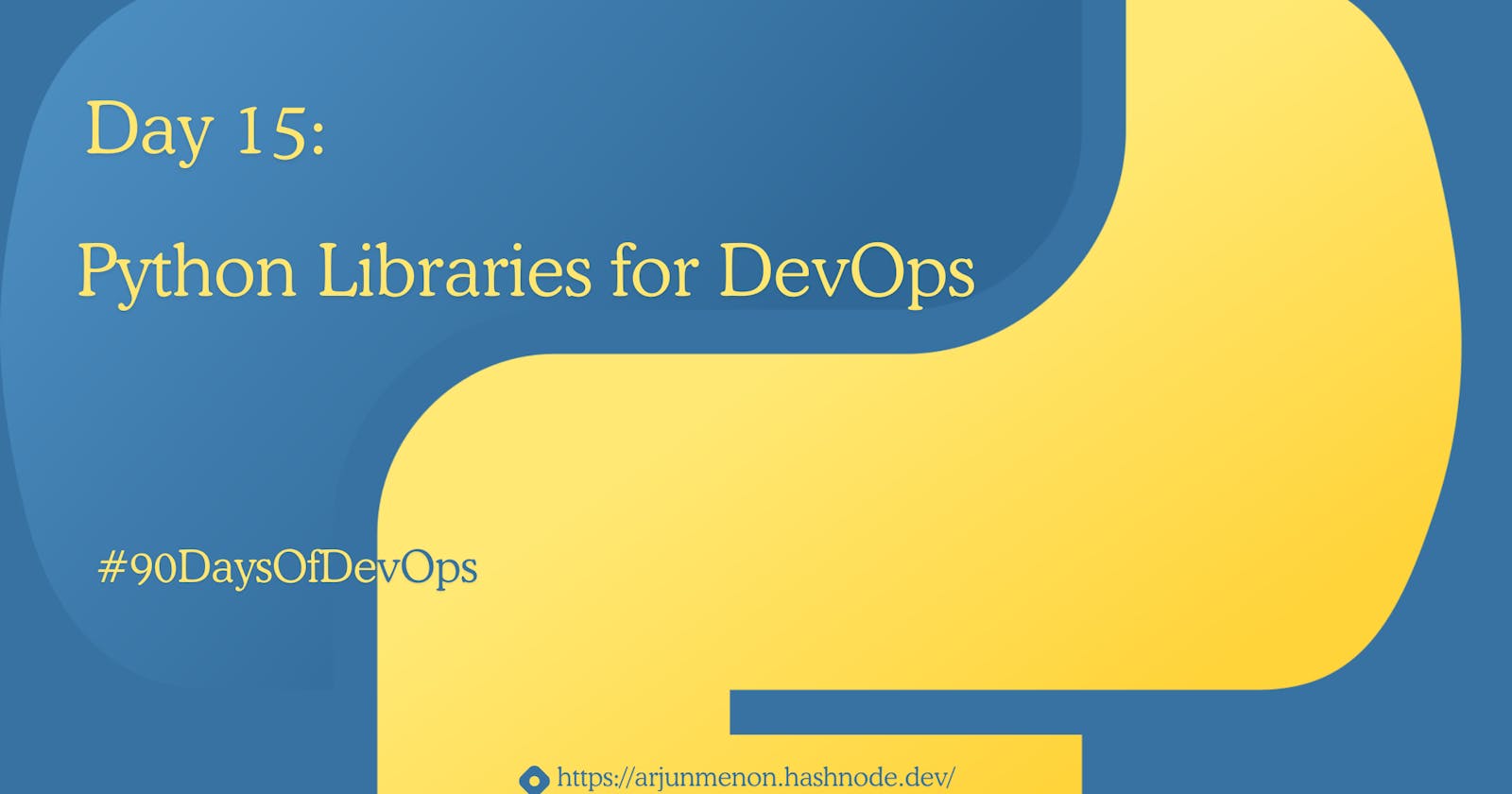Introduction 🚀
As a DevOps Engineer, proficiency in working with various file formats is a crucial skill. This includes parsing JSON and YAML files, which are commonly used for configuration and data exchange. Python provides a robust set of libraries that streamline these tasks, making it an invaluable tool for DevOps practitioners. In this blog post, we'll explore how to read and manipulate JSON and YAML files using Python, along with a brief overview of essential libraries for DevOps tasks.
Libraries for DevOps in Python 📚
Before we dive into working with JSON and YAML files, let's briefly discuss some of the essential libraries that a DevOps Engineer should be familiar with in Python. These libraries include os, sys, json, yaml, and more. They are instrumental in automating tasks, managing system resources, and handling configuration files.
1. Creating a Dictionary and Writing to a JSON File 📝
import json
# Create a dictionary
cloud_services = {
"aws": "ec2",
"azure": "VM",
"gcp": "compute engine"
}
# Write the dictionary to a JSON file
with open('services.json', 'w') as json_file:
json.dump(cloud_services, json_file)
print("Dictionary written to services.json")
2. Reading JSON Files 📄
# Read the JSON file
with open('services.json', 'r') as json_file:
services_data = json.load(json_file)
# Print the service names for each cloud provider
for provider, service in services_data.items():
print(f"{provider} : {service}")
Output:
aws : ec2
azure : VM
gcp : compute engine
3. Reading YAML Files and Converting to JSON 📄➡️📝
To read a YAML file and convert its contents to JSON, we'll use the pyyaml library.
pip install pyyaml
import yaml
# Read the YAML file and convert to JSON
with open('services.yaml', 'r') as yaml_file:
yaml_data = yaml.safe_load(yaml_file)
# Convert to JSON
json_data = json.dumps(yaml_data)
# Print the JSON data
print(json_data)
Make sure you have a services.yaml file with YAML content in the same directory.
Conclusion 🎉
Being adept at working with JSON and YAML files is a fundamental skill for any DevOps Engineer. Python, with its rich ecosystem of libraries, makes this task straightforward and efficient. By mastering these techniques, you'll be well-equipped to handle configuration files, automate deployments, and work seamlessly with various cloud providers.
By following the examples provided in this blog post, you'll have a solid foundation for managing JSON and YAML files in your day-to-day tasks as a DevOps Engineer. These skills are invaluable for ensuring smooth operations and efficient workflows in any DevOps environment.
Let's connect on LinkedIn - https://www.linkedin.com/in/arjunmenon-devops/
